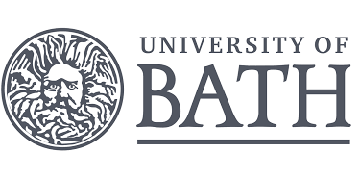University of Bath: Students win gold for a design that turns a pollutant into a soil nutrient
A team of students from the University of Bath has won a gold medal in the iGEM competition – the prestigious international event that rewards teams for their smart use of synthetic biology to tackle complex, everyday issues facing the world.
Synthetic biology is an emerging field of science that involves redesigning existing biological systems (such as microorganisms) to give them new abilities.
For their award-winning project, the team from Bath developed PhoBac – a bacterial variant that can mop up polluting phosphate from wastewater and release it into the soil, where it serves as an important crop nutrient. PhoBac is engineered from the benign bacterium Bacillus subtilis.
The multidisciplinary team – which included undergraduate, Masters and PhD students from the Departments of Life Sciences, Computer Science, Chemical Engineering and Mechanical Engineering – was also nominated for the Best Sustainable Development Impact Goals award.
Two major world issues
PhoBac addresses two major world issues: phosphate source depletion and eutrophication – the process of adding nutrients to the environment in a way that’s harmful to life.
Gregorio Nepomuceno Queiroz, the Molecular Biosciences MSc student who advanced the idea of forming an iGEM team, and went on to lead the project, said: “Phosphate is an important fertiliser, but it’s also a limited resource that we mine from the ground. When it runs out, which it will in 50 to 200 years, food prices will skyrocket without a sustainable alternative.
“The phosphate that has been painstakingly mined enters our body through our food and is then flushed down the drain. When it enters our rivers, it promotes harmful algal blooms that block sunlight and reduces oxygen levels, killing invertebrates and fish.”
Explaining how PhoBac can make a difference, he said: “Our project involves engineering a bacterium that can remove phosphate from water to be reapplied on crops as a biofertiliser, tackling the problem of excess phosphate in our rivers while providing farmers with a sustainable source of fertiliser.
“We aim to close the loop on our phosphate use, creating a circular phosphorus bioeconomy.”
Also involved in the project was final year Biology student Jeremy Boyle. He said: “We’re extremely pleased with our gold medal, a recognition of our efforts in the many areas iGEM values, from lab results to modelling, stakeholder engagement, collaboration, education and more. Our nomination for Best Sustainable Development Impact also recognises the centrality of sustainability to PhoBac and the urgent need for solutions to our unsustainable phosphorus use.”
He added: “PhoBac at scale promises to stabilise and reduce agricultural costs, which are currently volatile and on the rise. It also has the potential to reduce the phosphate levels in our rivers and streams, rehabilitating aquatic ecosystems along with fish and invertebrate biodiversity.”
Integrating both elements of the design
Phase one of the project – designing circuits which may enable PhoBac to remove phosphate from water and demonstrating phosphate release in response to plant signals – is now complete.
The team now hopes to move on to the next phase.
“We’ll need to integrate both sections of our design – uptake and release – into the same bacterium,” said Jazz Ghataora, the PhD student who was crucial to the synthetic biology design and experimentation. “Then we’ll need to undergo several studies investigating how our finalised bacterium would behave in the soil.”
Alexz Farrall, project chief engineer and researcher on human-computer interactions said he looked forward to seeing other like-minded teams tackling complex and real-work problems in future competitions.
“I hope others follow in our footsteps as the world is too big for us to fight on our own,” he said.
The PhoBac project was supervised by Professor Momna Hejmadi, Associate Dean (Education) at the University. Commenting on her students’ achievement, she said: “This is the first time our university has entered this prestigious competition and I couldn’t be more thrilled and proud by what our students have achieved. From concept to creation, this project was delivered entirely by them. This is an immense feat.”

